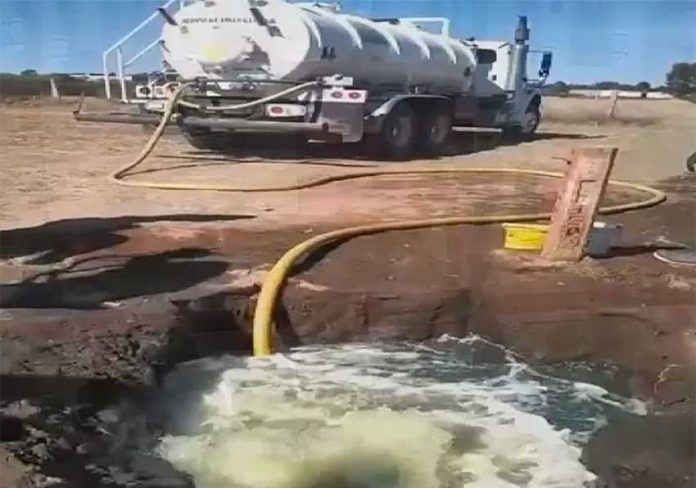Two major petroleum pipelines closed by the federal government as part of its anti-fuel theft strategy have reopened and two more are expected to follow soon.
The government announced yesterday that the pipeline between Tuxpan, Veracruz, and Azcapotzalco, a northern borough of Mexico City, had resumed service, while the Guanajuato government said the pipeline between Salamanca and León had reopened.
México state Governor Alfredo del Mazo Maza said yesterday afternoon that the pipeline between Tula, Hidalgo and Toluca would also reopen “within hours.” However, media reports this morning said the pipeline remained closed.
Jalisco Governor Enrique Alfaro announced this morning that the pipeline between Salamanca, Guanajuato, and Guadalajara would partially reopen on Saturday.
In a video posted to his social media accounts, Alfaro said he had spoken to federal Energy Secretary Rocío Nahle, who informed him of the plan to open the pipeline.
The Tuxpan-Azcapotzalco pipeline was “sabotaged” five times in less than a week, according to President López Obrador.
The closure of the line, which has the capacity to transport 170,000 barrels of fuel a day, was a major contributor to gasoline shortages in Mexico City and parts of México state.
López Obrador has committed to providing permanent security for the duct to ensure it does not have to be closed again.
National Defense Secretary Cresencio Sandoval said today that federal security forces stopped another attempted tap on the pipeline in the early hours of this morning.
In Guanajuato, the Salamanca-León pipeline resumed service at 11:00am yesterday after a 10-day closure. Five hundred military personnel and state and federal police are providing security.
A high-ranking official in the Guanajuato government told the newspaper Milenio that the security operation “will be permanent because we don’t want the pipeline to be closed again.”
Before yesterday’s reopening, it was inspected by Pemex and other authorities who determined that there were no unrepaired perforations.
Guanajuato is one of more than 10 states that have experienced gasoline shortages since the federal government began making greater use of tanker trucks to transport fuel rather than pipelines as part of the strategy to combat fuel theft.
Pemex employees told Milenio that it was also important to open the Tula-Salamanca pipeline to ensure that there is enough gasoline in Guanajuato to meet demand.
In México state, gasoline shortages are still affecting the metropolitan area of Toluca, which depends heavily on the pipeline from Tula.
The pipeline is targeted so frequently by thieves that federal Security Secretary Alfonso Durazo referred to it as a gasoline “drain.”
At a press conference this morning, López Obrador said the government’s decision to deploy the military to protect the nation’s pipelines is proving to be effective and pledged that gasoline supply throughout the country would return to normal soon.
“The deployment of the army and navy . . . has been very effective because it has allowed us to open pipelines that were controlled by [organized] crime,” he said.
Source: Milenio (sp), El Universal (sp), Noticieros Televisa (sp)
